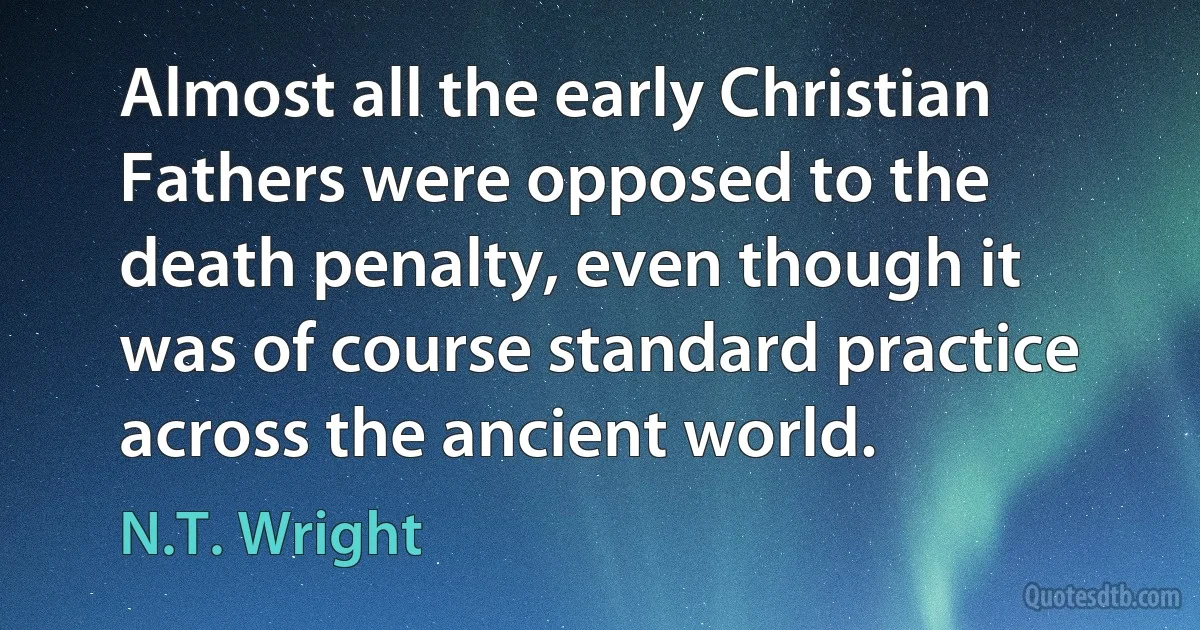Practice Quotes - page 34
Tektology is not something principally new; it is not a leap in scientific evolution, but a necessary conclusion from the past, the necessary continuation of what has been done and is being done by men in their practice and theory. This is in part a justification for my boldness ... if any justification is necessary.

Alexander Bogdanov
Now, what is 'unrighteousness' in practice? It is in practice behavior of a kind disliked by the herd. By calling it unrighteousness, and by arranging an elaborate system of ethics around this conception, the herd justifies itself in wreaking punishment upon the objects of its own dislike, while at the same time, since the herd is righteous by definition, it enhances its own self-esteem at the very moment when it lets loose its impulse to cruelty. This is the psychology of lynching, and of the other ways in which criminals are punished. The essence of the conception of righteousness, therefore, is to afford an outlet for sadism by cloaking cruelty as justice.

Bertrand Russell
What modern apologists call 'true' Christianity is something depending upon a very selective process. It ignores much that is to be found in the Gospels: for example, the parable of the sheep and the goats, and the doctrine that the wicked will suffer eternal torment in Hell fire. It picks out certain parts of the Sermon on the Mount, though even these it often rejects in practice. It leaves the doctrine of non-resistance, for example, to be practised only by non-Christians such as Gandhi. The precepts that it particularly favours are held to embody such a lofty morality that they must have had a divine origin. And yet ... these precepts were uttered by Jews before the time of Christ.

Bertrand Russell
When I was a child the atmosphere in the house was one of puritan piety and austerity. There were family prayers at eight o'clock every morning. Although there were eight servants, food was always of Spartan simplicity, and even what there was, if it was at all nice, was considered too good for children. For instance, if there was apple tart and rice pudding, I was only allowed the rice pudding. Cold baths all the year round were insisted upon, and I had to practice the piano from seven-thirty to eight every morning although the fires were not yet lit. My grandmother never allowed herself to sit in an armchair until the evening. Alcohol and tobacco were viewed with disfavor although stern convention compelled them to serve a little wine to guests. Only virtue was prized, virtue at the expense of intellect, health, happiness, and every mundane good.

Bertrand Russell
An atheist, like a Christian, holds that we can know whether or not there is a God. The Christian holds that we can know there is a God; the atheist, that we can know there is not. The Agnostic suspends judgment, saying that there are not sufficient grounds either for affirmation or for denial. At the same time, an Agnostic may hold that the existence of God, though not impossible, is very improbable; he may even hold it so improbable that it is not worth considering in practice. In that case, he is not far removed from atheism. His attitude may be that which a careful philosopher would have towards the gods of ancient Greece. If I were asked to prove that Zeus and Poseidon and Hera and the rest of the Olympians do not exist, I should be at a loss to find conclusive arguments. An Agnostic may think the Christian God as improbable as the Olympians; in that case, he is, for practical purposes, at one with the atheists.

Bertrand Russell
I like colorized diffs, but let's face it, those particular color choices will make most people decide to pick out their eyes with a fondue fork.And that's not good. Digging in your eye-sockets with a fondue fork is strictly considered to be bad for your health, and seven out of nine optometrists are dead set against the practice.So in order to avoid a lot of blind git users, please apply this patch.

Linus Torvalds
Big industry, freed from the pressure of private property, will undergo such an expansion that what we now see will seem as petty in comparison as manufacture seems when put beside the big industry of our own day. This development of industry will make available to society a sufficient mass of products to satisfy the needs of everyone. The same will be true of agriculture, which also suffers from the pressure of private property and is held back by the division of privately owned land into small parcels. Here, existing improvements and scientific procedures will be put into practice, with a resulting leap forward which will assure to society all the products it needs. In this way, such an abundance of goods will be able to satisfy the needs of all its members.

Friedrich Engels
Notice the sleight of hand. The repair of temples is allowed! Temples can be constructed in villages! Temples can be constructed ‘within the privacy of homes'! Thus ‘liberal policy' is the norm which is departed from only in times of war! And the ones who are fought and destroyed at such times are in any case ‘the enemies of Islam'! In times of peace, which are the times that prevailed normally, the norm prevails – that is, ‘the Hindus practice their religion openly and ostentatiously!' Each of these assertions is a blatant falsehood. But these historians, having, through their control of institutions, set the standards of intellectual correctness, the one who questions the falsehoods, even though he does so by citing the writings of the best known Islamic historians of those very times, he is the one who is in the wrong.

Arun Shourie
I think the best thing the Federal Gov. can do when it comes to education K-12 is to abolish the Federal Department of Education. The Federal Department of Education gives each state about 11 cents out of every school dollar that every state spends but it comes with about 16 cents worth of strings attached. So what I think the country ... people do not understand is it's a negative to take federal money... So just get the fed. govt. out of education completely. Leave education to the states. Fifty laboratories of innovation and best practice and in my opinion we would have some fabulous innovation that would get emulated because we are all so competitive.

Gary Johnson
Nor are liberal ideals alone sufficient: Ours is a practical people, to whom ideals furnish the theory of political action, upon which they want not only firm assurance, but also effective practice. They want programmes, but they want action to flow from them. They want constructive common sense. They want the development of the common will, not the views of a single individual. They are beginning to realize that words without action are the assassins of idealism. On the other side, they are equally disgusted with seeking for power by destructive criticism, demagoguery, specious promises and sham.

Herbert Hoover
In spite of all the foregoing, there is a science of economics, a true, and even exact, science, which reaches laws as universal as those of mathematics and mechanics. The greatest need for the development of economics as a growing body of thought and practice is an adequate appreciation of the meaning, and the limitations, of this body of accurate premises and rigorously established conclusions. It comes about in the same general way as all science, except perhaps in a higher degree, i. e., through abstraction. There are no laws regarding the content of economic behavior, but there are laws universally valid as to its form. There is an abstract rationale of all conduct which is rational at alt, and a rationale of all social relations arising through the organization of rational activity.

Frank Knight
Dr. King was a powerful figure of destiny, of courage, of sacrifice, and of vision. Few people in the long history of this nation can rival his accomplishment, his reason, or his selfless dedication to the cause of peace and social justice.
Today we honor a wise teacher, an inspiring leader, and a true visionary, but to truly honor Dr. King we must do more than say words of praise.
We must learn his lessons and put his views into practice, so that we may truly be free at last.

Cesar Chavez
To study Marxism-Leninism is to learn the spirit in which one should deal with things, with other people and with oneself. It means to study the universal Marxist-Leninist truths in order to apply them creatively to the practical conditions of our country. We must study with a view to action . Theory must go hand in hand with practice.

Ho Chí Minh



